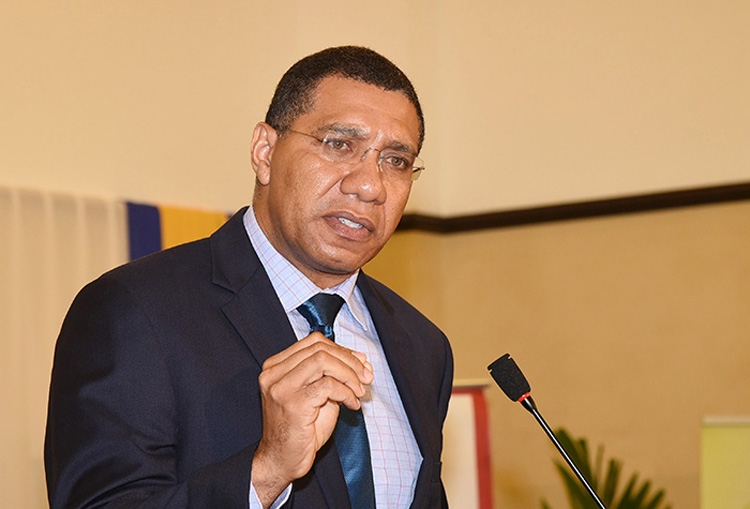Jamaican Prime Minister Andrew Holness wants a further extension of the Debt Service Suspension Initiative (DSSI) by the Group of 20 (G-20) nations for Caribbean countries as a further response to effects of the COVID-19 pandemic in the region.
As of now the facility is in place until June, and Holness is seeking an extension of that cutoff point, asserting that this measure is justified by the challenges which the pandemic has brought about for poor countries that have “come at tremendous socio-economic costs” and that those countries “have borne the burden of steep cuts in public expenditures.”
Prime Minister Holness made the call on Monday while addressing a virtual high-level meeting with Heads of State and Governments on International Debt Architecture and Liquidity. He is also quoted as saying that consideration should be given to an expansion of the G-20’s beneficiary net to include highly indebted middle-income countries.
Noting that private creditors account for a significant share of the overall creditor composition of developing countries, Holness said that these should be actively pursued and engaged to participate in the DSSI on equal terms.
“We need to bring the credit rating agencies into our discussions, as many countries are afraid to apply for debt relief because of the threat of ratings downgrade,” Holness is quoted as saying. The Jamaican Prime Minister also wants the creation of a special framework that will last the duration of the pandemic, which he says would be “more than worthy of their (the G20 Group’s) contemplation given the larger medium-term cumulative benefit of more countries achieving earlier recovery with sustainable debt arrangements.”
Holness is also calling for the utilisation of innovative financial instruments including debt swaps, contingent debt instruments, and the creation of specialised liquidity funds which he says can also play an important role in ameliorating the debt and liquidity challenges of developing countries. “In this respect, we support the proposal by the Economic Commission for Latin America and the Caribbean (ECLAC) to address the liquidity needs of Caribbean countries, through the creation of a Caribbean Resilience Fund. It has also proposed a debt [instrument] for climate adaptation swap facility,” Holness adds.
Prime Minister Holness also reportedly expressed support for a proposal put forward by Costa Rica for the creation of an “extraordinary support fund” designed to help countries in pursuit of their external debt obligations. “These initiatives merit serious consideration, especially for Caribbean Island Developing States, given our vulnerability to climate change and dependence on external capital flows from tourism and remittances,” Holness also stated.








